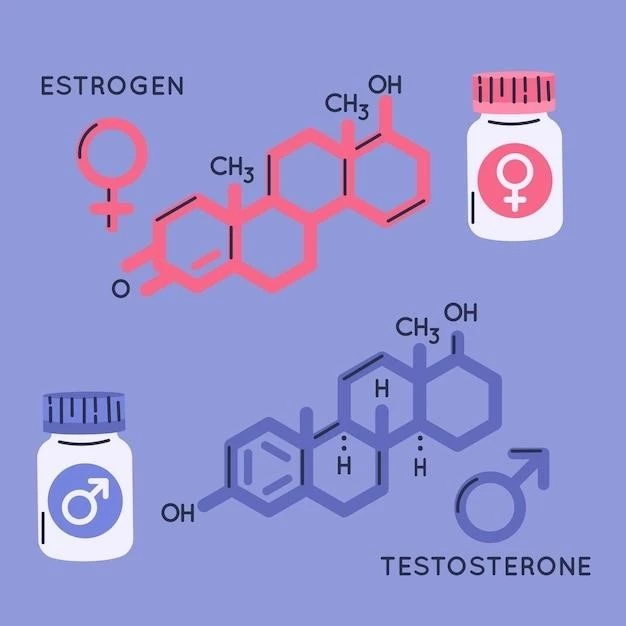Introduction to Multiple Carboxylase Deficiency‚ Late Onset
Multiple carboxylase deficiency (MCD) is a metabolic disorder characterized by cutaneous and neurologic abnormalities due to the inability to reutilize biotin.
Symptoms result from the deficiency of biotinidase affecting essential carboxylases.
Overview of the Disorder
Multiple carboxylase deficiency (MCD) is a metabolic disorder characterized by cutaneous and neurologic abnormalities due to the inability to reutilize biotin. Symptoms result from the deficiency of biotinidase affecting essential carboxylases. Late-onset MCD presents with skin rash‚ alopecia‚ seizures‚ ataxia‚ and other neurological manifestations‚ often due to impairment in biotin recycling. The disorder‚ though rare‚ can have significant impacts on individuals and typically requires lifelong management and treatment with biotin supplementation.
Clinical Presentation and Symptoms
Clinically‚ late-onset multiple carboxylase deficiency presents with skin rash‚ alopecia‚ seizures‚ ataxia‚ and occasionally candidiasis and developmental delay. These manifestations are attributed to deficiencies in biotin-dependent carboxylases.
Characteristics of Late-Onset Multiple Carboxylase Deficiency
Late-onset multiple carboxylase deficiency is characterized by clinical manifestations such as skin rash‚ alopecia‚ seizures‚ ataxia‚ and occasionally candidiasis and developmental delay. These symptoms are a result of impaired biotin recycling‚ specifically affecting biotin-dependent carboxylases. The deficiency‚ linked to a lack of biotinidase enzyme function‚ points to the importance of early detection and treatment for optimal management of the disorder.
In late-onset multiple carboxylase deficiency‚ the impairment of biotin-dependent carboxylases affects critical energy pathways‚ leading to symptoms such as skin rash‚ alopecia‚ seizures‚ and ataxia. Biotinidase deficiency plays a significant role in the genetic basis of this disorder‚ highlighting the importance of early detection for effective management.
Understanding the Impairment of Biotin-Dependent Carboxylases
Late-onset multiple carboxylase deficiency involves an impairment in biotin-dependent carboxylases‚ affecting critical energy pathways and leading to symptoms such as skin rash‚ alopecia‚ seizures‚ and ataxia. This impairment is linked to deficiencies in biotinidase‚ highlighting the genetic basis of the disorder and the importance of managing biotin levels for proper functioning of essential carboxylases.
Diagnosis and Testing
Diagnosing late-onset multiple carboxylase deficiency typically involves clinical assessment‚ biochemical testing‚ and genetic analysis. Tests may include measuring enzyme activity levels and identifying mutations in genes related to biotin metabolism. Consult with healthcare professionals for accurate diagnosis and appropriate testing procedures.
Methods for Identifying Late-Onset Multiple Carboxylase Deficiency
Diagnosing late-onset multiple carboxylase deficiency typically involves clinical assessment‚ biochemical testing‚ and genetic analysis to identify deficiencies in biotin-dependent carboxylases. Testing methods may include enzyme activity measurements‚ gene mutation analysis‚ and biochemical assays to determine the impairment affecting essential carboxylases. Consultation with healthcare providers specialized in metabolic disorders is crucial for accurate identification and diagnosis of late-onset multiple carboxylase deficiency.
Treatment and Management
Managing late-onset multiple carboxylase deficiency typically involves biotin supplementation under the guidance of healthcare providers. Treatment aims to address the underlying enzymatic deficits and manage symptoms effectively. Regular monitoring and a balanced diet are essential components of the management plan. Collaboration with specialists in metabolic disorders ensures comprehensive care for individuals with late-onset multiple carboxylase deficiency.
Approaches to Addressing Late-Onset Multiple Carboxylase Deficiency
Managing late-onset multiple carboxylase deficiency involves timely biotin supplementation to address the impaired enzymatic pathways linked to biotinidase deficiency‚ ensuring proper energy metabolism. Collaborating with healthcare providers skilled in metabolic disorders is essential for devising effective treatment strategies tailored to individual needs. Regular monitoring and adherence to the management plan are vital for long-term care and symptom control.
Prognosis and Long-Term Outlook
Managing late-onset multiple carboxylase deficiency is crucial for the long-term well-being of individuals. Prompt treatment and ongoing monitoring can help control symptoms effectively and improve quality of life. Collaborate with healthcare professionals to ensure a comprehensive care plan tailored to the specific needs of the individual.
Understanding the Future Implications of Late-Onset Multiple Carboxylase Deficiency
Recognizing late-onset multiple carboxylase deficiency’s genetic basis and biochemical mechanisms is crucial for the future management and treatment of affected individuals. By understanding the impairment of biotin-dependent carboxylases‚ healthcare providers can develop personalized approaches focused on mitigating symptoms and optimizing long-term outcomes. Ongoing research and advancements in the field offer hope for more effective strategies in addressing the challenges posed by this rare metabolic disorder.
Research and Advancements
Stay informed about the latest research on late-onset multiple carboxylase deficiency to access cutting-edge treatments and advancements in managing this complex metabolic disorder. Continuous research offers hope for improved outcomes and tailored therapies for individuals affected by this condition. Collaborate with medical professionals to stay up-to-date on the latest developments in the field.
Current Studies and Developments in Late-Onset Multiple Carboxylase Deficiency
Ongoing research on late-onset multiple carboxylase deficiency focuses on further understanding the genetic and biochemical mechanisms underlying the disorder. Developments in identifying specific enzyme deficiencies and exploring targeted therapies offer promising avenues for enhanced treatment strategies. Stay updated on the latest studies to benefit from advancements in managing this complex metabolic condition.

Support Resources for Patients and Families
Access support groups and organizations specializing in multiple carboxylase deficiency to find valuable information‚ connect with other families facing similar challenges‚ and access resources for emotional support and guidance. These support networks can provide valuable insights‚ practical tips‚ and a sense of community to help navigate the complexities of managing late-onset multiple carboxylase deficiency. Remember‚ you are not alone in this journey.
Accessing Assistance and Guidance for Coping with Late-Onset Multiple Carboxylase Deficiency
Seek support from organizations specializing in multiple carboxylase deficiency to access vital information‚ connect with other families for shared experiences‚ and find emotional support. Collaborate with healthcare professionals for expert advice on managing the challenges associated with late-onset multiple carboxylase deficiency. Remember‚ support networks can provide valuable resources and comfort throughout the journey.

Conclusion
Understanding late-onset multiple carboxylase deficiency is essential for effective management. Collaborate with healthcare providers and support networks for comprehensive care and guidance on navigating this complex metabolic disorder. Stay informed‚ seek assistance‚ and remain proactive in addressing the challenges associated with late-onset multiple carboxylase deficiency.
Summarizing the Importance of Awareness and Management of Late-Onset Multiple Carboxylase Deficiency
Being aware of late-onset multiple carboxylase deficiency is crucial for effective management. Understanding the condition‚ seeking proper medical care‚ and connecting with support networks can significantly impact the quality of life for individuals and families dealing with this complex metabolic disorder. By staying informed‚ proactive‚ and engaged in the management process‚ individuals with late-onset multiple carboxylase deficiency can optimize their outcomes and well-being. Remember‚ knowledge and support are key in navigating the challenges associated with this condition.
